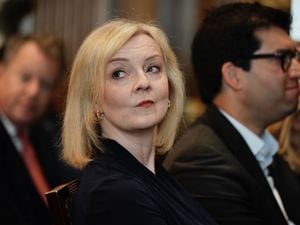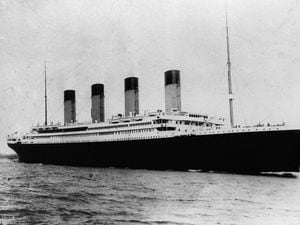Dudley's city status would be long overdue recognition for a town that shaped the nation
If you want to rub somebody from Dudley up the wrong way, there is one sentence that is always guaranteed to deliver a result.
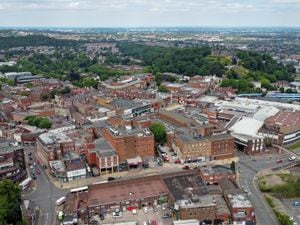
Dudley? That's near Birmingham isn't it?
For the past century or so, the Capital of the Black Country has suffered the stigma of life in the shadow of the noisy neighbours up the road. The brash, nouveau riche city, where people all speak with funny accents and demonstrate odd metropolitan mores. Where they can bore for England about being an international city with the youngest population in Europe...zzzz.
Birmingham. I can barely bring myself to say its name.
If that were not enough, Dudley's smaller neighbour up the road was also afforded city status to mark the Millennium. Fair enough, Wolverhampton probably deserved it, even if its population is well short of that of Dudley.
But the thing that really irritates us Dudleians is that our town was shaping national events when Brummagem was a tiny two-horse town populated by straw-sucking peasants. Before its meteoric rise to prominence in the 19th and 20th centuries, Birmingham was very much the junior partner in this rivalry.
Dudley Council is this week submitting its bid to become the UK's next city, as part of the Queen's Platinum Jubilee next year. It will be the fourth time that Dudley has been in the running, and hopes are high that the town's time has finally come.
If successful it will not be before time. Indeed, it could be said that Dudley is a city 425 million years in the making, given that it was the vast resources of Silurian limestone that turned modern Dudley into an industrial powerhouse.
For hundreds of years the epicentre of power in the West Midlands, the barons of Dudley Castle ruled over the region with a rod of iron.
From the Norman Conquest, through the bloody battles for the succession over the centuries, to the English Civil War – when the fighting stopped to allow for the funeral of Mistress Beaumont – the intrigues and shenanigans at Dudley Castle have shaped the country we live in today.
And then in the 17th century, thanks to the efforts of Baron Dudley's metallurgist son Dud – and his great-grand-nephew Abraham Darby – the town reinvented itself as the birthplace of the Industrial Revolution.
It is believed that Dudley was established in Anglo-Saxon times, when Dudda, the town's founder, decided to settle in a 'leah', or clearing, and Duddan Leah was born.
But it was the arrival of the Normans, and the acquisition of the town by William the Conqueror's trusty lieutenant Ansculf de Picquigny that truly put Dudley on the map. He built a castle from which he would govern the West Midlands, completed sometime about 1070, and over next hundred years or so, a market was established between St Thomas's Church, at the top of the town, and St Edmund's at the bottom. The layout has remained broadly the same to this day.
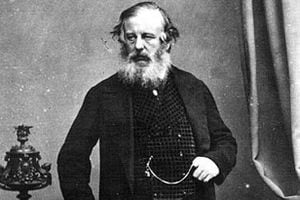
A later baron of the castle, John Dudley, Duke of Northumberland, decided that being master of the Midlands was not enough. So in 1551 he became the de facto ruler of England during the regency of King Edward VI. But he probably took things a bit too far when he installed his daughter-in-law, Lady Jane Grey, as Queen. Nine days into her reign, the Duke – and the short-lived Queen – became the first to discover how 'Bloody Mary' would earn her nickname.
By the 1600s, Dudley was already a major industrial centre, but Baron Dudley's son Dud realised that the area was being held back by a shortage of charcoal to power the furnaces.
"Within ten miles of Dudley Castle there were 20,000 smiths of all sorts and many iron works at that time within that circle decayed for want of wood," he wrote in 1665. But on leaving Oxford University in 1618 to take charge of his father's furnace at Pensnett, he devised a way of smelting iron ore using coke using Dudley's vast limestone resources. Following his death, his great-grand-nephew Abraham Darby – born in the shadow of the vast limestone cliffs at Wren's Nest – carried on with the work, transforming the way metals could be used. Around this time, Thomas Newcomen also built the world's first atmospheric steam engine at Dudley, and between them these two men sparked the Industrial Revolution in which Britain – and the Black Country in particular – led the world.
Of course, all that is in the past, and now it is time to look to the future. Dudley was first shortlisted as a contender for city status by the Home Office during the Silver Jubilee in 1977, but the honour ultimately went to Derby. It was a candidate when the first competition to create a new city was held in 1992, but lost out to Sunderland, and also made a bid during the Diamond Jubilee year in 2012.
It has to be said that the years since Dudley was first identified as a potential city have not been much to shout about.
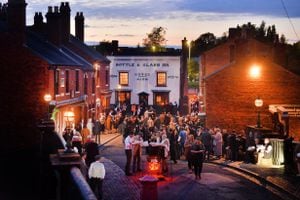
The closure of Round Oak steelworks in 1982 and the collapse of the town centre following the opening of the Merry Hill centre in 1985, have certainly been low points for this famous old town. On the other hand, the success of the Black Country Museum, the Dudley Canal Trust and Castle Gate leisure park all show that there are still plenty of people who want to visit Dudley if they are given a reason to do so. Dudley Zoo has also seen something of a renaissance over the past decade.
With a population of 313,000, Dudley would certainly be one of the larger cities in the UK. Steeped in history but struggling to find its place in the 21st century, Dudley is a town which needs to regain its voice, just as it did in the 1600s when the feudal seat of power reinvented itself as Britain's industrial heartland.
Hopefully, formal recognition as a city – a role it has surely been playing for hundreds of years – will give Dudley that voice. It will make people look at the town afresh, raise the profile of what it has to offer, and crucially, attract much-needed investment.
And hopefully stop Londoners from calling us Brummies.
Prehistoric wonder. Norman fortress. Medieval market town. Scene of some of the greatest power struggles for the control of the monarchy. Crucible of the Gunpowder Plot, bloody battleground in the English Civil war. Birthplace of Industry. And it is also home to the world's oldest condoms. You can't say that Dudley's claim to city status lacks variety.

